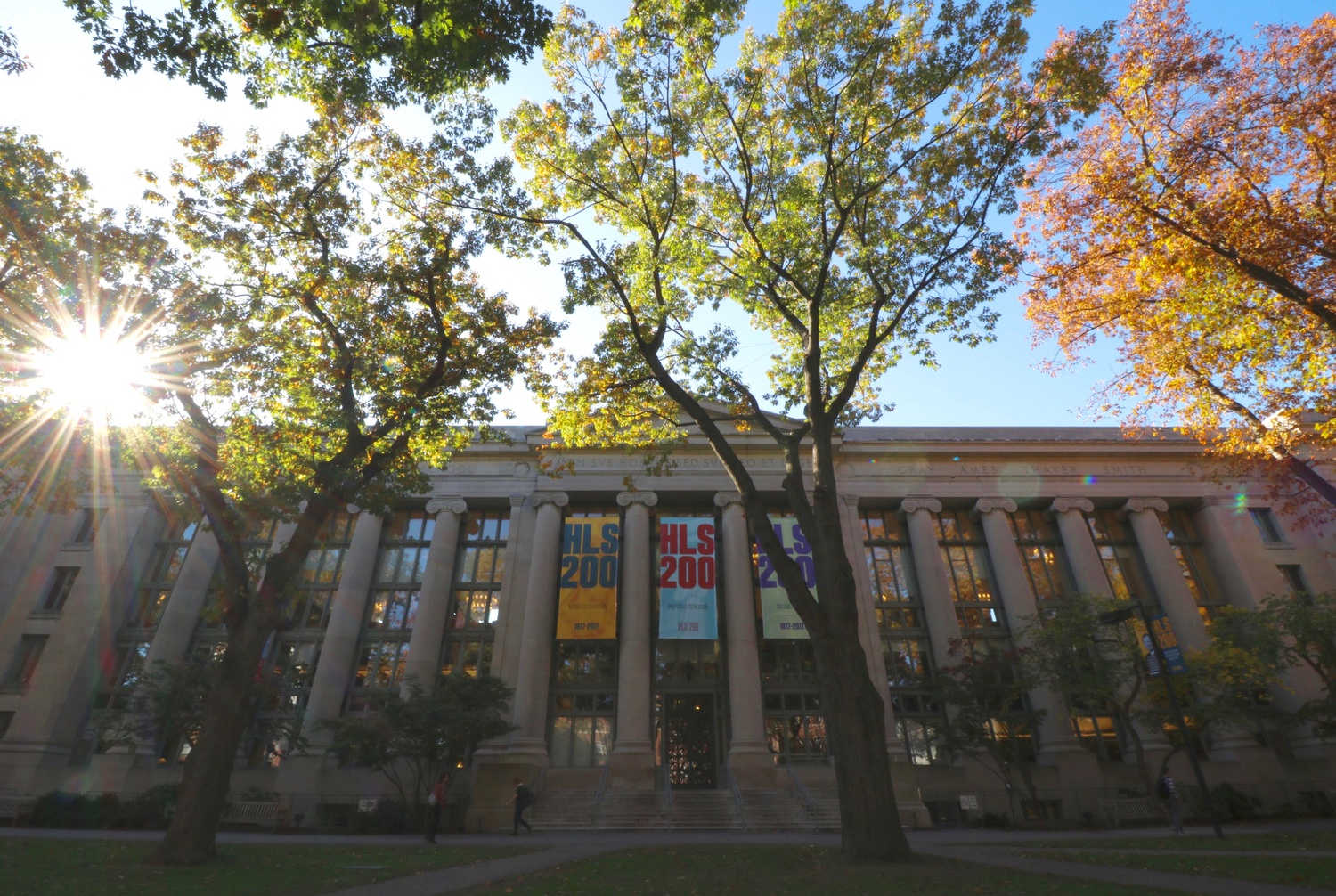
News
Summers Will Not Finish Semester of Teaching as Harvard Investigates Epstein Ties

News
Harvard College Students Report Favoring Divestment from Israel in HUA Survey

News
‘He Should Resign’: Harvard Undergrads Take Hard Line Against Summers Over Epstein Scandal

News
Harvard To Launch New Investigation Into Epstein’s Ties to Summers, Other University Affiliates

News
Harvard Students To Vote on Divestment From Israel in Inaugural HUA Election Survey
40 Harvard Law Profs Sign NYT Op-Ed Demanding Senate Reject Kavanaugh

This article was updated on Oct. 4, 2018 at 8:15 p.m.
Forty Harvard Law School professors have signed a New York Times editorial arguing that the United States Senate should not confirm Judge Brett M. Kavanaugh as an Associate Justice of the Supreme Court.
Harvard affiliates — including former Law School Dean Martha L. Minow and Laurence Tribe — joined more than 2,400 law professors across the country in signing the editorial, published online Wednesday. The professors wrote that Kavanaugh displayed a lack of “impartiality and judicial temperament requisite to sit on the highest court of our land” in the heated testimony he gave during a nationally televised hearing held Sept. 27 in front of the Senate Judiciary Committee.
“Judge Kavanaugh exhibited a lack of commitment to judicious inquiry,” the letter read. “Instead of being open to the necessary search for accuracy, Judge Kavanaugh was repeatedly aggressive with questioners.”
As of Thursday evening, 40 Harvard Law professors had signed the article, which authors indicated "will be updated as more signatures are received." The signatories presented their letter to the United States Senate on Oct. 4.
Kavanaugh testified in front of the Senate committee to address allegations of sexual misconduct raised by Palo Alto psychology professor Christine Blasey Ford, who has accused the Supreme Court nominee of attempting to rape her at a house party in 1982 in suburban Maryland. Ford recounted these allegations in detail to the Judiciary Committee last Thursday before Kavanaugh himself testified.
After Ford went public with her allegations, two more women — Deborah Ramirez and Julie Swetnick — came forward with their own charges. Ramirez said Kavanaugh shoved his penis in her face at a party during their freshman year at Yale College and Swetnick issued a statement in which she said she saw Kavanaugh engage in “inappropriate contact of a sexual nature with women during the early 1980s.”
Kavanaugh has repeatedly denied these allegations. During last Thursday’s hearing, he vehemently and angrily insisted that the women’s tales of sexual misconduct formed part of a partisan plot by the Democrats to ruin his nomination.
The professors did not take a stance on the allegations against Kavanaugh, focusing instead on the judge's temperament and writing that “we have differing views about the other qualifications of Judge Kavanaugh.”
The Crimson reported Monday evening that Kavanaugh will not return to teach at the Law School this winter; he was originally slated to teach a class titled “The Supreme Court Since 2005” for three weeks starting in early January. Kavanaugh has lectured at the Law School for roughly a decade.
In their letter, the professors wrote that “judicial temperament” numbers among the “most important qualities of a judge” and that Kavanaugh’s lack of composure at his hearing is “disqualifying” for a nomination “for any court, and certainly for elevation to the highest court of this land.”
The professors also criticized Kavanaugh for calling the hearing “partisan” and for displaying agitation over Senators’ questions.
“Instead of trying to sort out with reason and care the allegations that were raised, Judge Kavanaugh responded in an intemperate, inflammatory and partial manner, as he interrupted and, at times, was discourteous to senators,” the professors wrote.
Law School Dean John F. Manning ’82 was not among the letter’s signatories as of late Thursday.
Correction: Oct. 4, 2018
An Oct. 3 version of this article listing the then-25 Harvard Law professors who had signed the New York Times editorial left off Law School professor Bruce Hay. The Crimson regrets the error. The article was updated to remove the list of Harvard signatories after the number grew significantly over the course of the day on Oct. 4.
—Staff writer Alexandra A. Chaidez can be reached at alexandra.chaidez@thecrimson.com. Fellow her on Twitter at @a_achaidez.
Want to keep up with breaking news? Subscribe to our email newsletter.
